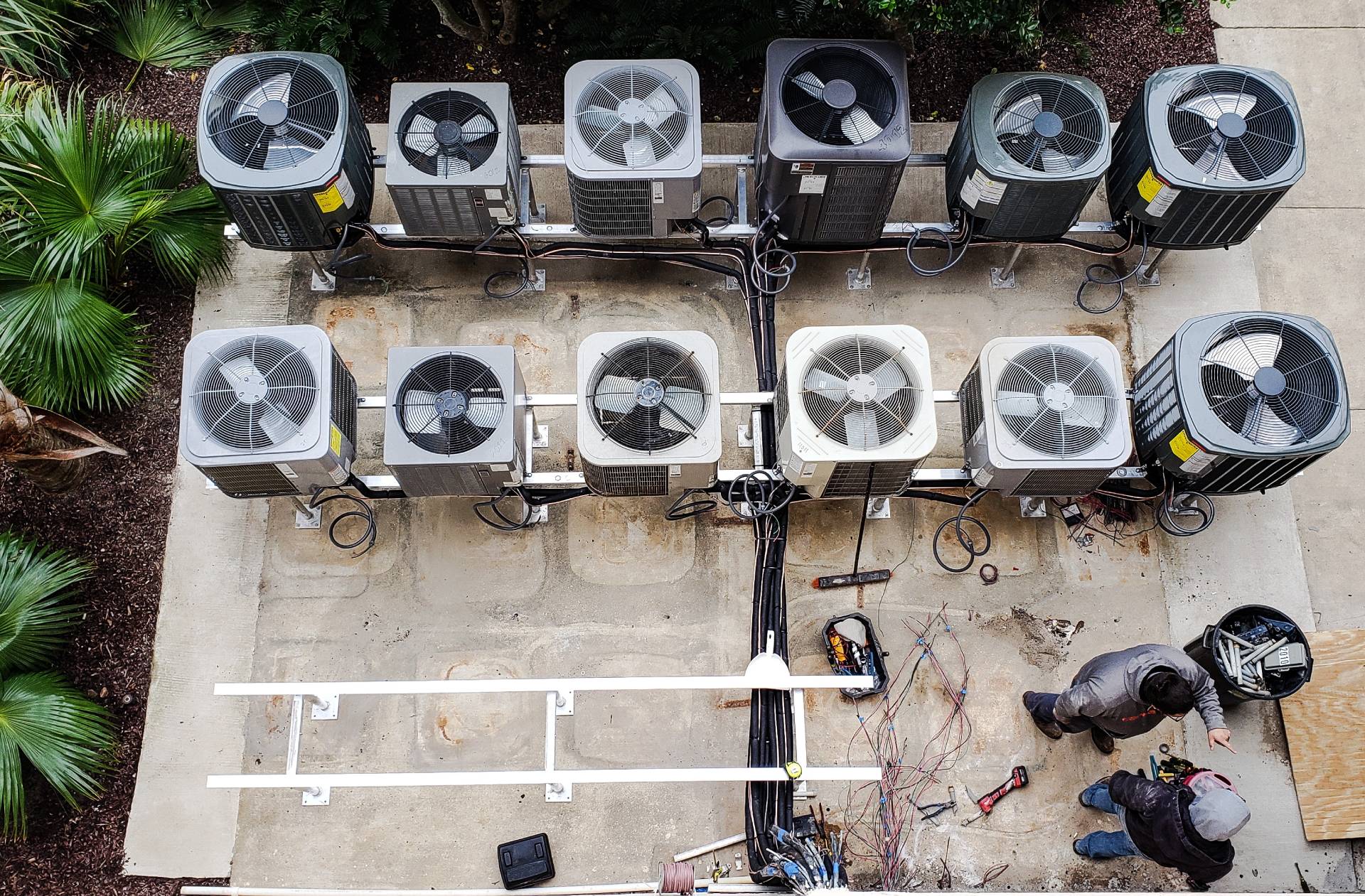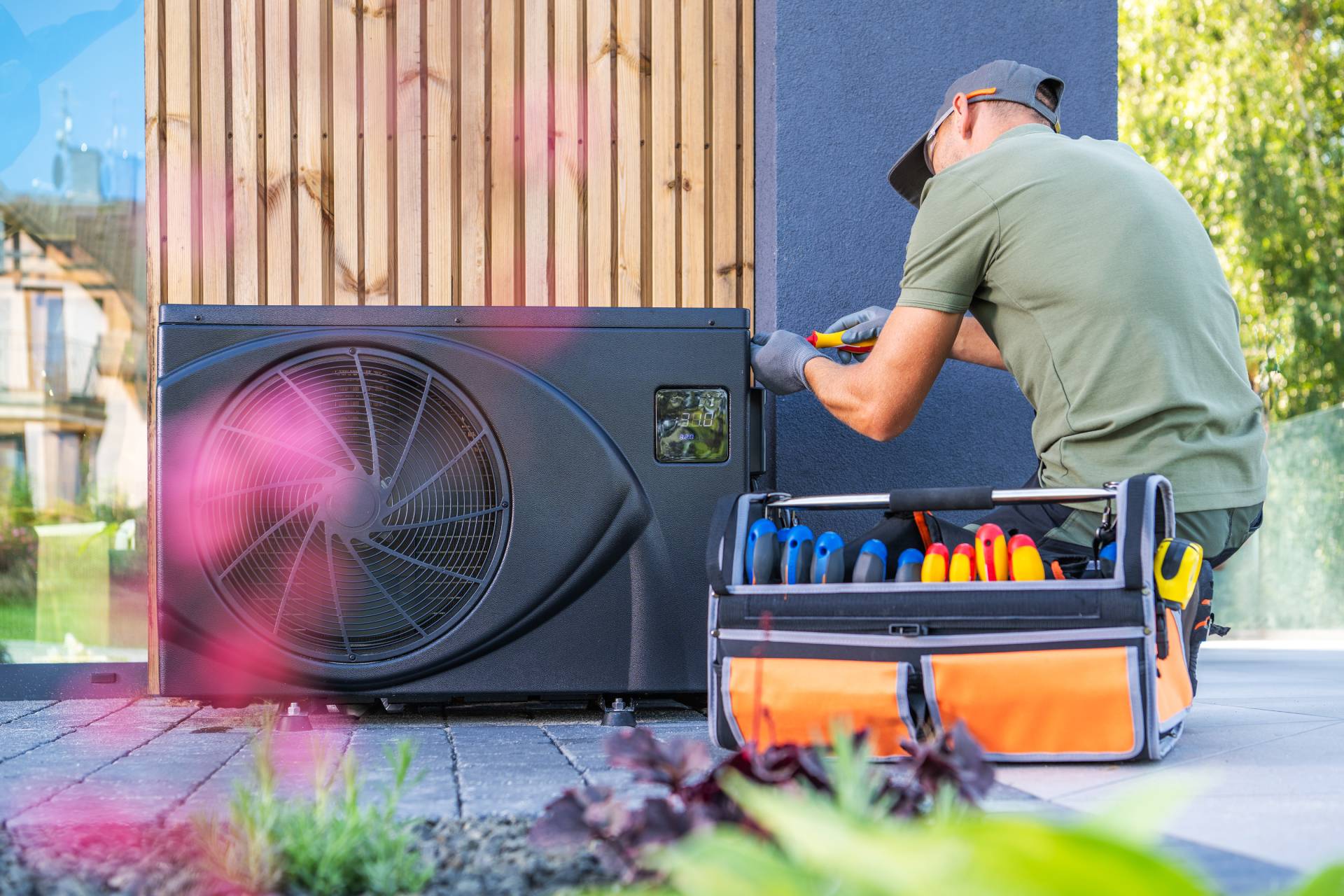Heat Pump Maintenance: Keeping Your System Running Efficiently
Heat pumps are a highly efficient way to heat and cool your home, making them a popular choice for homeowners.
However, like any other mechanical system, they require regular upkeep to perform at their best. Heat pump maintenance is essential to ensure that your system operates efficiently, lasts longer, and keeps your energy bills down.
We will explore the importance of maintaining your heat pump, how often you should perform maintenance, and the steps you can take to keep your system in top condition.
Why Heat Pump Maintenance Is Important
Regular heat pump maintenance is crucial to the performance and longevity of your system. Heat pumps are responsible for both heating and cooling your home, which means they work year-round. This constant use puts a strain on the system, making maintenance essential for several reasons.
First, regular maintenance helps prevent breakdowns. Like any other machine, wear and tear can lead to malfunctions if not addressed. By keeping your heat pump in good condition, you reduce the likelihood of costly repairs.
Second, heat pump maintenance ensures your system operates efficiently. A well-maintained heat pump uses less energy, which means lower utility bills. This not only saves you money but also reduces your carbon footprint.
Lastly, maintaining your heat pump can extend its lifespan. With proper care, a heat pump can last up to 15-20 years. Without regular maintenance, you might find yourself needing to replace the system much sooner.
How Often Should You Perform Heat Pump Maintenance?
Routine Heat Pump Maintenance
For optimal performance, it’s recommended to schedule heat pump maintenance at least twice a year—once before the cooling season and once before the heating season. This ensures that your system is prepared for the temperature changes and can handle the increased workload during peak times.
In addition to these biannual professional check-ups, there are some tasks you can perform yourself throughout the year. Regularly checking and cleaning certain components of your heat pump can help maintain its efficiency and prevent larger issues from developing.
Seasonal Maintenance
During the spring and fall, when the weather is milder, it’s the perfect time to perform maintenance on your heat pump. Since it’s not working as hard during these seasons, it allows you to check for any potential problems before they become serious.
Spring maintenance is essential to prepare your heat pump for the cooling season, while fall maintenance ensures that your system is ready to heat your home during the colder months.
DIY Heat Pump Maintenance Tasks
Cleaning or Replacing Filters
One of the simplest yet most important tasks in heat pump maintenance is regularly cleaning or replacing the air filters. Dirty filters reduce airflow, causing your heat pump to work harder than necessary. This not only decreases efficiency but can also lead to system failure over time.
It’s recommended to check your filters every one to three months and clean or replace them as needed. This is especially important if you have pets or if anyone in your household suffers from allergies, as a dirty filter can exacerbate indoor air quality issues.
Checking the Outdoor Unit
The outdoor unit of your heat pump can easily become clogged with leaves, dirt, and debris, especially during the fall and winter months. Part of your regular heat pump maintenance should include inspecting and cleaning the outdoor unit.
Clear any debris from around the unit and make sure that plants, shrubs, or other objects aren’t obstructing airflow. It’s important to leave at least two feet of clearance around the outdoor unit to ensure proper airflow and avoid overworking the system.
Inspecting the Thermostat
Your thermostat plays a crucial role in the operation of your heat pump. If your thermostat isn’t working correctly, your system may run too often or not enough, leading to inefficient operation and higher energy bills. As part of your heat pump maintenance, check that your thermostat is functioning properly and set to the correct temperature. If you have an older, manual thermostat, consider upgrading to a programmable or smart thermostat to improve energy efficiency.
Lubricating Moving Parts
Heat pumps have several moving parts that need to be lubricated to operate smoothly. During your regular heat pump maintenance, make sure to lubricate the fan motor and other moving components to prevent friction and wear. This can help reduce noise, improve efficiency, and extend the lifespan of your system.

Professional Heat Pump Maintenance Services
What to Expect During a Professional Maintenance Visit
While DIY tasks can help keep your heat pump in good condition, professional maintenance is essential to catch more complex issues and ensure that everything is running as it should. During a professional heat pump maintenance visit, a technician will perform several important tasks.
They will inspect the electrical connections, tighten any loose components, and check the refrigerant levels to ensure that your system is operating efficiently. The technician will also examine the system for any signs of wear or damage, clean the coils, and ensure that the blower and fan are functioning correctly.
Importance of Professional Maintenance
Having a professional technician inspect your system twice a year ensures that small issues are caught before they turn into major, costly problems. In addition to prolonging the life of your heat pump, professional maintenance can also keep your warranty valid. Many manufacturers require proof of regular professional maintenance in order to honor warranty claims.
Regular professional heat pump maintenance not only keeps your system running efficiently but also provides peace of mind that your home will stay comfortable all year long.
Common Heat Pump Maintenance Issues and Solutions
Frozen Coils
One common issue that can occur if heat pump maintenance is neglected is frozen coils. This can happen when the airflow to the system is restricted, usually due to dirty filters or a blockage in the outdoor unit. Frozen coils can lead to system shutdowns and expensive repairs.
Regularly cleaning or replacing filters and keeping the outdoor unit free of debris can help prevent this issue. If you notice ice forming on the coils, it’s important to turn off the system and contact a professional technician immediately.
Inconsistent Heating or Cooling
If your heat pump is not heating or cooling your home evenly, it could be a sign of an issue with the thermostat or ductwork. Inconsistent temperatures may also indicate that your system is too large or too small for your home.
During your heat pump maintenance visit, a technician can check your thermostat settings and inspect your ductwork for leaks or blockages that could be causing uneven airflow.
Energy Efficiency and Heat Pump Maintenance
How Maintenance Impacts Energy Efficiency
One of the main reasons to stay on top of heat pump maintenance is to improve energy efficiency. A well-maintained heat pump uses less energy, which translates to lower utility bills. In fact, regular maintenance can help your heat pump maintain up to 95% of its original efficiency.
Neglecting maintenance can cause your heat pump to lose efficiency over time, meaning it has to work harder to heat or cool your home. This not only increases your energy bills but also shortens the lifespan of the system.
Tips for Maximizing Energy Efficiency
In addition to regular heat pump maintenance, there are several ways you can improve your system’s energy efficiency. For instance, using a programmable thermostat can help regulate the temperature in your home, ensuring that your system isn’t running unnecessarily when you’re not at home.
Additionally, sealing any air leaks in your home’s insulation can prevent conditioned air from escaping, reducing the workload on your heat pump. Simple steps like these can significantly improve the efficiency of your system and reduce your energy consumption.

When to Replace Your Heat Pump
Signs It’s Time for a New System
Even with regular heat pump maintenance, your system will eventually need to be replaced. Most heat pumps last between 15 and 20 years, but if your system is approaching this age and you notice frequent breakdowns or a significant increase in your energy bills, it may be time to invest in a new one.
Other signs that it’s time for a replacement include inconsistent temperatures, excessive noise, and poor air quality. A professional technician can assess your system and help you determine whether it’s more cost-effective to repair or replace it.
Benefits of Upgrading to a New System
Upgrading to a new heat pump can provide several benefits, including improved energy efficiency, quieter operation, and enhanced comfort in your home. Newer models also come with advanced features, such as variable-speed compressors and smart thermostat compatibility, which can further reduce your energy consumption and save you money in the long run.
Schedule Your Heat Pump Maintenance with Redlands & Henry Bush Plumbing, Heating and Air Conditioning
Maintaining your heat pump is essential to keeping your home comfortable and your energy bills low. Whether you need routine maintenance or a professional inspection, Redlands & Henry Bush Plumbing, Heating and Air Conditioning is here to help.
Our team of experienced technicians will ensure that your heat pump is running efficiently and catch any potential issues before they become major problems. Don’t wait until your system breaks down—contact us today to schedule your heat pump maintenance and keep your home comfortable year-round!




